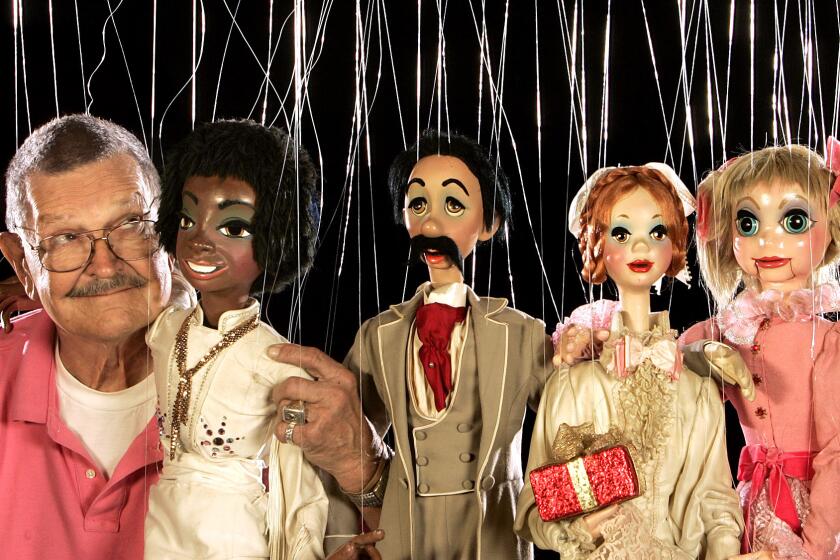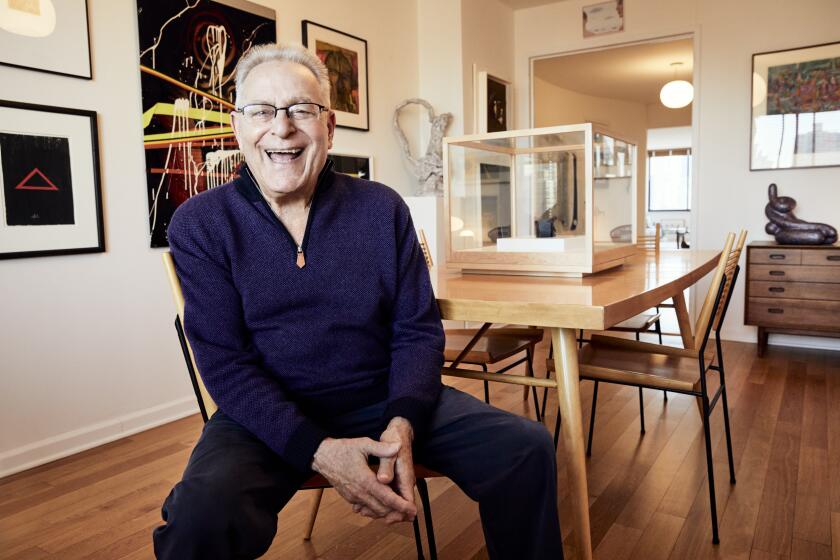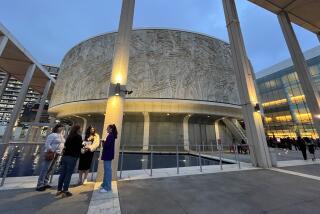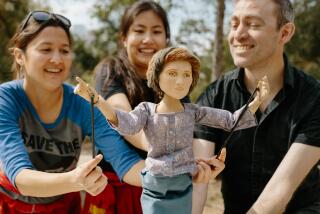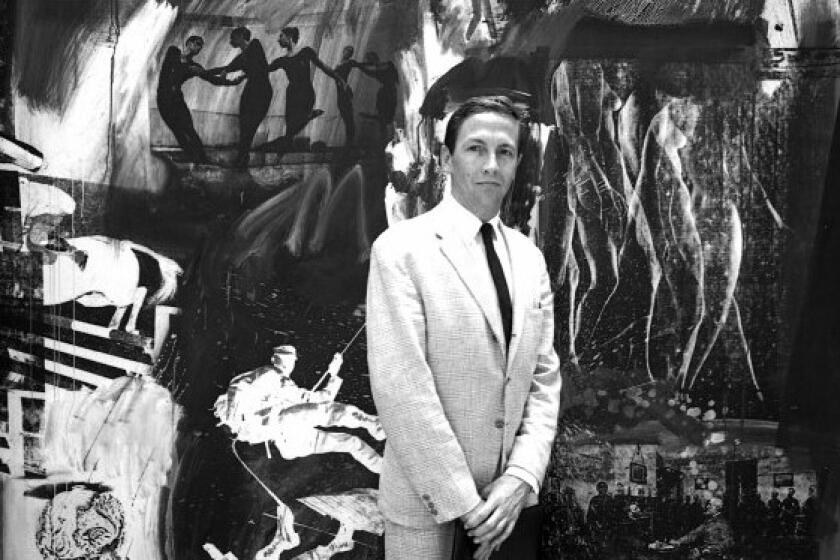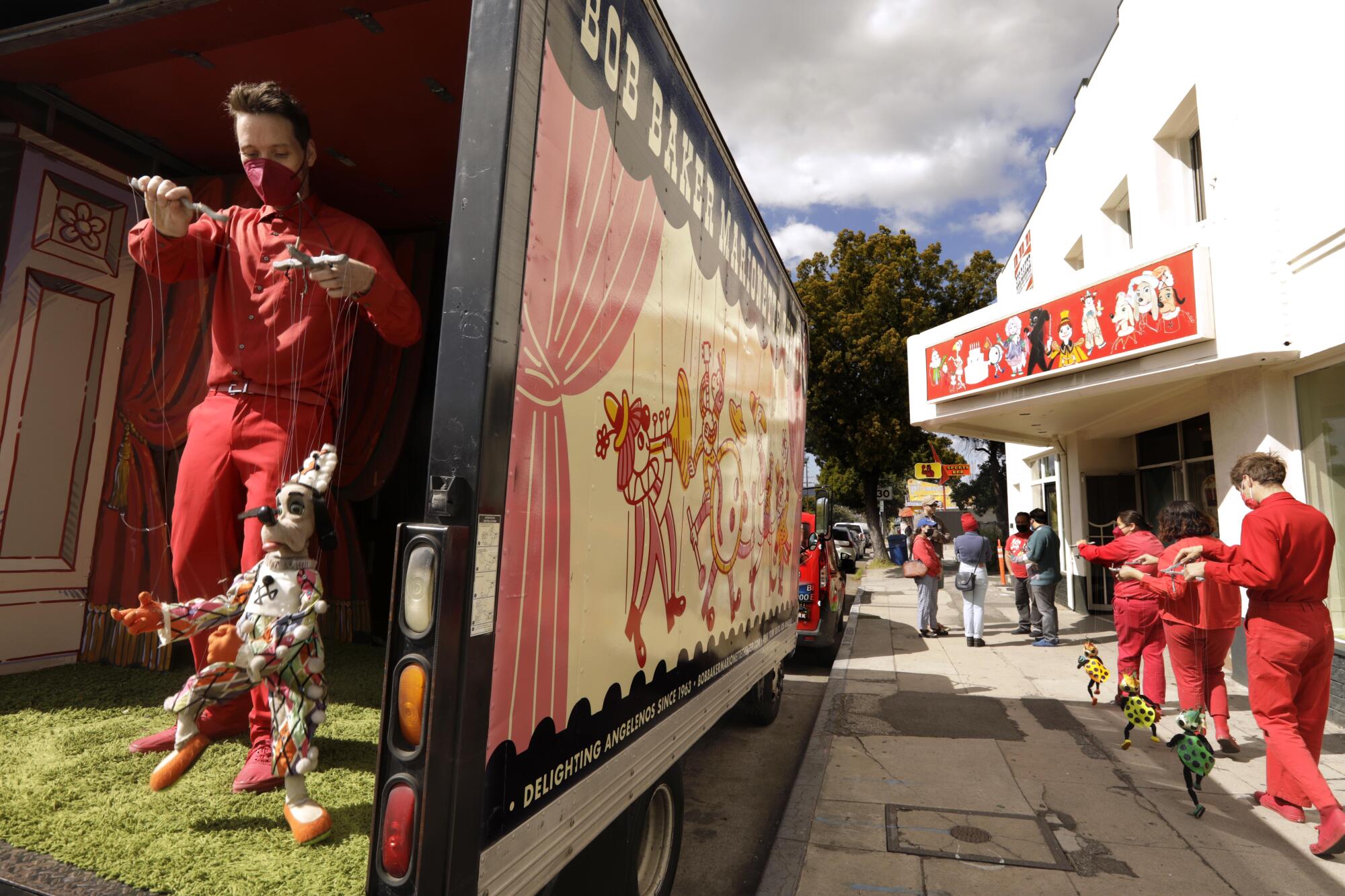
Back in March of 2020, the day Gov. Gavin Newsom announced that all of California’s live entertainment venues needed to shut down to prevent the spread of the coronavirus, Alex Evans, executive director and head puppeteer at the Bob Baker Marionette Theater, called a meeting. His message? First, staffers were going to stay late, taking turns performing puppet numbers that could be filmed and later posted to Instagram. Then, before they left their base of operations in Highland Park, Evans instructed everyone to select a favorite handcrafted puppet or two from the theater’s massive 2,000-strong collection, be it a beret-wearing French rat or a horn-playing monkey in a top hat. That would allow troupe members to use the puppets at home to create kid-oriented DIY public service announcements encouraging the likes of handwashing or regular exercise.
If the Bob Baker troupe’s pandemic pivot occurred at warp speed, it might be because the longest continuously running puppet theater in America has adapted to much adversity since its founding in 1963. In 2013, the theater’s original creator, animator-puppeteer Bob Baker, was so cash-poor that he was forced to sell the company’s original building just west of downtown. The following year, Baker died at the age of 90. After that, the puppeteers learned that the new owner’s plans included taking a wrecking ball to the cinderblock structure and erecting a multiuse development on its site. Though they were promised the theater could return to the complex, the offered space turned out to be the size of a strip-mall Starbucks. This necessitated a citywide search for a new home, one that ended on York Avenue in a former silent movie theater. In between, the troupe faced “decades of uncertainty,” says director of development Winona Bechtle, when it came to making ends meet.
Somehow, though, these self-effacing players discovered that they were more durable than they thought, that there often was a solution and that if they didn’t have the skills to make their plans a reality, they’d figure it out eventually.
Borrowing a concept from the New Deal era, when traveling puppet shows were commonplace, the troupe installed curtains and built fold-out scenery in a 15-foot Isuzu box truck donated by Bob Baker fans Greg and Eli Park. Soon after the initial lockdown was lifted, the troupe was tooling around L.A. in its “Marionette Mobile,” pulling into driveways or parking curbside and putting on a show while young audiences sat at an appropriate distance.
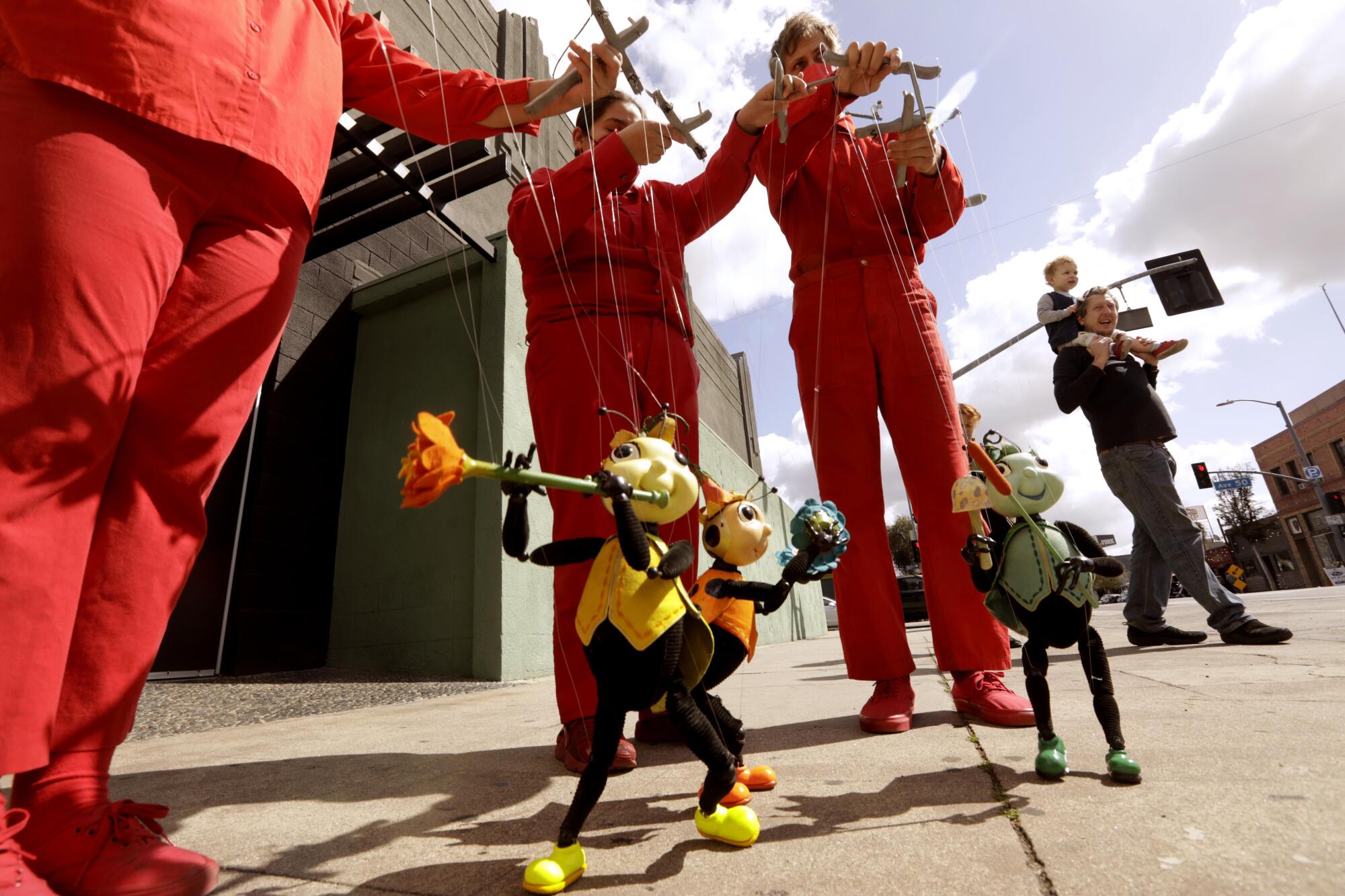
They never stopped brainstorming new ways to keep the theater going. They offered puppet-making lessons over Zoom as well as behind-the-scenes backstage tours. They set up an account on Patreon, the subscriber-based platform service, offering perks such as private Zoom shows, often capped with question-and-answer sessions that turned out to fill a need to connect for both fans of the theater and puppeteers cooped up in quarantine. “Sometimes I’d come downstairs and I’d be like, ‘The show was booked for an hour but you’ve been talking for 80 minutes,” says Bechtle. “No one wanted to [hang up], so they’d just keep it going.”
For years, puppeteer Bob Baker’s marionette theater hung on by a thread.
If someone didn’t have the cash to become a Patreon member but was still looking for attention-diverters for antsy offspring, there was Bob Baker puppeteer Ginger Duncan’s weekly Instagram Live sessions. Every Sunday, Duncan could be found in her Pasadena backyard getting one of Baker’s original creations from the 1960s — a kindly spell-caster with a pointy hat called the Green Witch — to skip, dance and, in a high-pitched, giggly voice, respond to followers’ questions in the comments section. At the bottom of the screen, Duncan installed a donations button and the $5 and $10 offerings flowed in.
It’s a fact that there are some out there who are creeped out by puppets (as well as mimes and, of course, clowns). But back in the summer of 2020, the Bob Baker gang trained its sights on a promising untapped demographic: engaged couples looking for a safe wedding venue, with the novel bonus of being married by a brightly colored puppet officiant manipulated by Evans, who is licensed to perform matrimonial ceremonies. The troupe partnered with Short & Sweet, a self-described “elopement pop-up,” which took care of the flowers, photographs, decorations and cake. From the perspective of Alena Niu, who tied the knot with Alex Lathrop at the theater almost two years ago, the arrangement had an appealing practicality. Only four guests were allowed, so there was no fussing over who sat next to whom and no need for the traditional chicken-or-fish menu planning. In fact, because Niu and Lathrop are toy designers for Mattel, it barely caused a ripple when they announced that their nuptials would be Zoomed live from a marionette theater. “If I’m like, ‘Oh, I got married by a puppet,’ [people don’t] always register what I said,” says Niu. “It’s like, ‘OK, cool,’ then, ‘Wait. What?’”
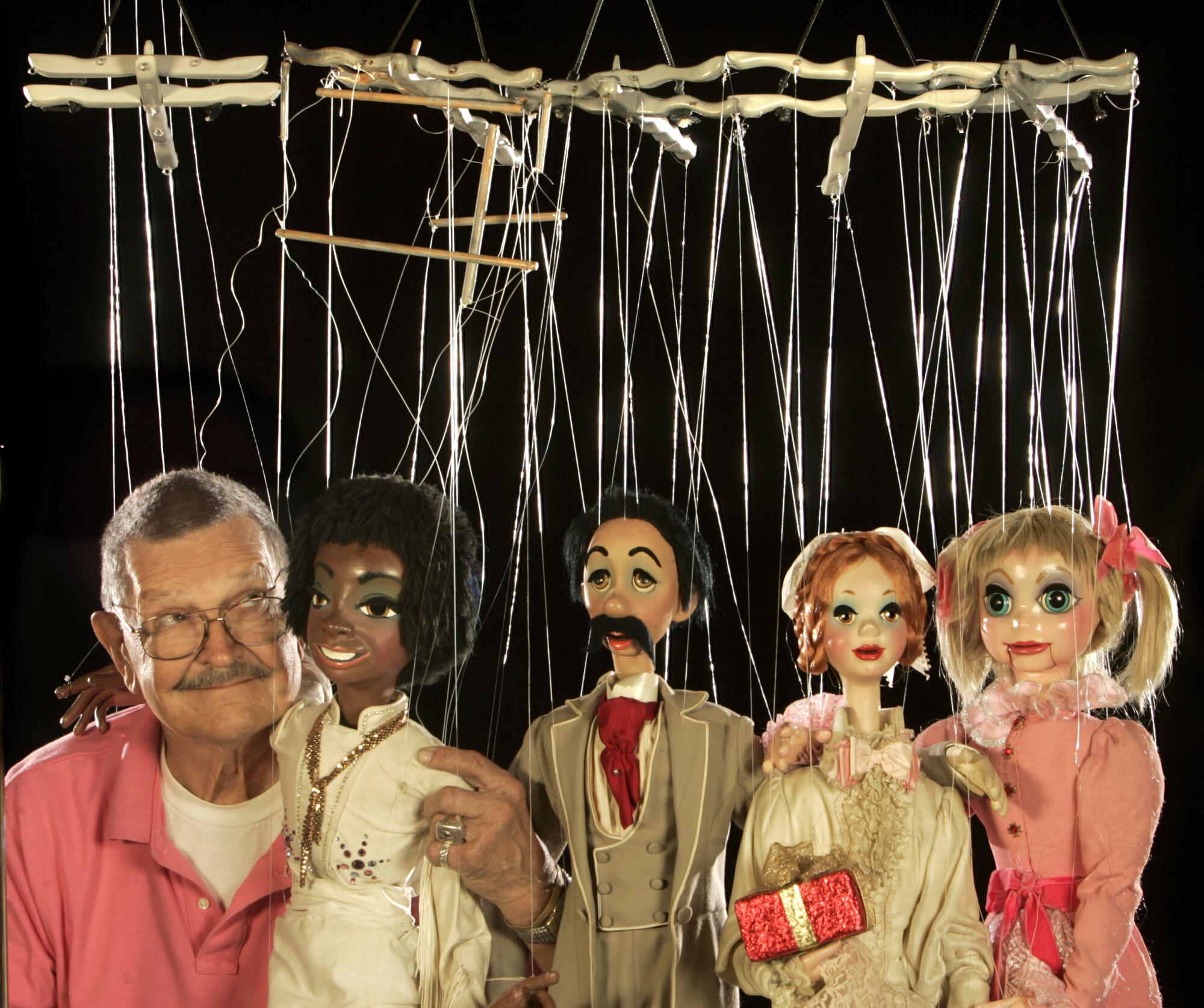
With fewer shows to perform, troupe members also embarked on a book project. They dove into the theater archives and began compiling what would eventually become “Enchanted Strings” (Angel City Press), a coffee-table volume that tracks the history of the Bob Baker Marionette Theater.
As October 2021 approached, and restrictions eased slightly, a new challenge presented itself: how to create a safe in-house experience in celebration of Halloween. They hoped to construct their version of what Bechtle calls “a Disneyland dark ride,” where small groups of people could wander down a zig-zag pathway flanked by mechanized puppets. “It was an engineering madhouse,” says Evans of what it took to produce what they called the “Peek-a-Boo Stroll-Through.” They lucked into a wealth of live-show expertise from a pandemic-sidelined tech community eager to help. Lighting designer Joel Huxtable, who tours with Ziggy Marley, showed up. So did sound engineer Chris Constable. Gearheads with time on their hands came and, free of charge, restored animatronics that hadn’t moved in 40 years.
There’s something about the Bob Baker Marionette Theater staff, perhaps their unfiltered earnestness, that makes people want to help. This came in handy a month after their Halloween success when Evans realized that no matter how many new creative gambits they dreamed up, the theater’s closure seemed imminent. It was time for something they’d never done: a direct plea on social media — in this case, an Instagram post explaining their plight — in the hope that folks would reach for their wallets, and that their impressive list of celebrity supporters would activate their own followers. Reposts from Karen O of the Yeah Yeah Yeahs and actress Eva Mendes, who’s been a fan since elementary school, helped do the trick. Within a month the troupe hit its fundraising goal, enough to help get through another year of the pandemic.
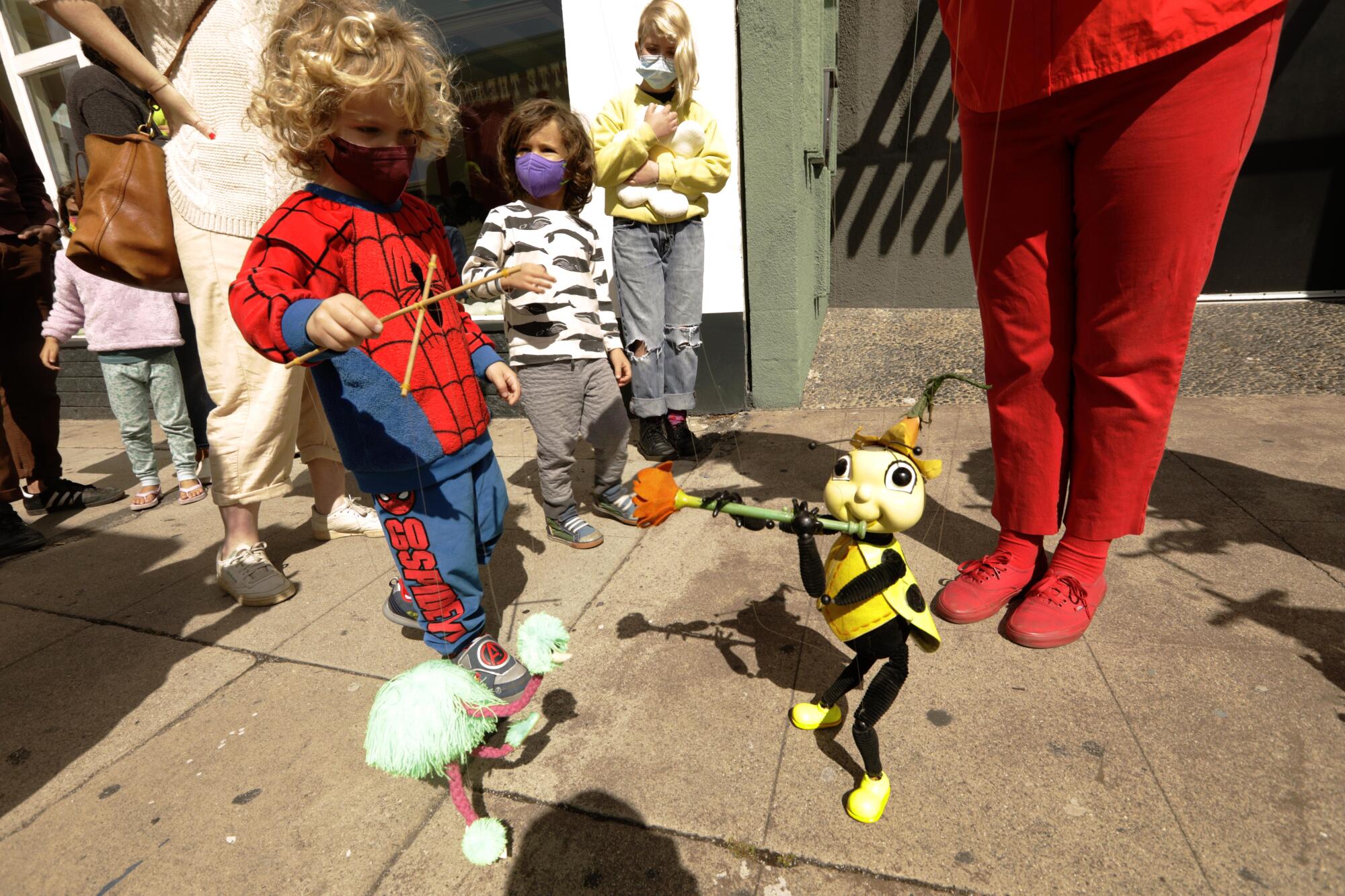
But it meant more than just being able to keep the doors open. “It was like we’d built up enough goodwill that when the threat of us going away happened — and not for the first time — people reacted differently,” says Bechtle. “This time we had almost five years of providing consistent service to people, hosting summer camps, doing residencies. We are so clearly a vibrant nonprofit that exists to serve the community. It felt like, ‘Oh! We recognize what a resource you are. This is a place worth supporting.’ And for the puppeteers, myself, for everyone at the theater, it just felt like a huge vote of confidence.”
Late last year the troupe was finally able to invite audiences back into the 100-seat theater. Bechtle remembers children streaming in. Some of them had been to shows pre-pandemic, some were too young to have ever been to the theater before. Yet they all asked for the puppets by name. They’d say, “Where’s the Green Witch?” “Where’s Happy the Birthday Dog?”
“How do they know this?” Bechtle wondered, then realized it was from Zoom and social media. “It was really sweet to reopen,” she says. “But it also felt like people never left.”
‘Licorice Pizza’ director Paul Thomas Anderson calls former L.A. City Council member Joel Wachs “an indispensable part of Valley history.” Yet the film’s portrayal isn’t always flattering. Why Wachs agreed to let his name be used.
More to Read
The biggest entertainment stories
Get our big stories about Hollywood, film, television, music, arts, culture and more right in your inbox as soon as they publish.
You may occasionally receive promotional content from the Los Angeles Times.
